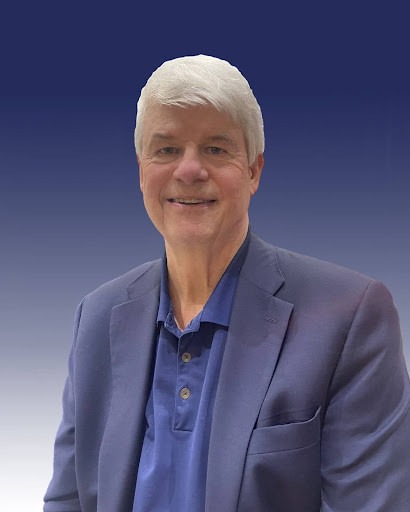Uncertainty in the Air: The Lackner Group Steps In to Guide Practitioners Through the Fog Over Federal Estate Tax Future

As speculation intensifies about the future of the federal estate tax, families and small business owners across the country are once again caught in a familiar state of confusion. Will the current federal estate tax exclusion revert to pre-2017 levels at the end of 2025? Or will lawmakers act quickly, possibly before the end of May, to lock in a new direction before heading into summer recess?
What's certain is that change is coming. And with that change comes uncertainty and speculation. "The truth is, nobody knows exactly what's going to happen," says Vince Lackner, President of The Lackner Group (founded in 1985) and President of Leimberg, LeClair & Lackner, Inc (founded in 1984 by Steve Leimberg and Bob LeClair). "But that doesn't mean families should sit back and wait."
With more than 40 years of experience helping attorneys, estate professionals, and families navigate complex estate and fiduciary matters, The Lackner Group has built its legacy on turning complexity into clarity. And in moments like this, where policy shifts are possible and confusion is widespread, that clarity is more critical than ever.
One of the most persistent myths surrounding the federal estate tax is that it affects millions of small businesses and farms. In reality, fewer than 100 such entities (and only around 3,000 estates of 3,000,000 decedents) were subject to the tax in 2017. That's a far cry from the public narrative.
Similarly, the idea that families are regularly forced to 'sell the farm' to pay federal estate taxes is more anecdote than reality. Many small farms and businesses qualify for installment payments, such as paying the tax over 15 years. Yet these persistent stories continue to shape public opinion. "The demonization of the federal estate tax creates an anti-tax narrative even for those who will never be affected by it. They hear these things, and they support policy that is against their own interests," Vince explains. "The wealthy are forced to spend thousands on unnecessary legal strategies. Or worse, they make no plan at all."
That's where Lackner comes in. He has spent decades designing and/or supporting estate and fiduciary software tools that professionals rely on nationwide. Known for its flagship products, 6-in-1 and the NumberCruncher, the companies combine decades of technical expertise with a passion for education and clarity in estate planning. But the team's mission extends beyond the digital realm. Their broader vision is one of social impact, helping to prevent families and their estate planners from making the same missteps that are often repeated generation after generation.
Vince states, "We, as a company, can contribute to a better-informed society. If we can prevent families from being misled, from being taken advantage of, that's how we give back." That focus on community impact drives The Lackner Group's work today, especially as the country approaches what could be a pivotal moment in federal estate tax policy.
The per-person federal estate tax exclusion, which ballooned from roughly $5.6 million in 2017 to nearly $14 million today due to the Tax Cuts and Jobs Act, is currently scheduled to revert to about half that level on January 1, 2026.
Recent discussions suggest a possible compromise: keeping a higher exclusion amount permanently, possibly starting at $15 million in 2026. But for now, nothing is set in stone, and speculation is filling the void.
For some years now, financial professionals have been urging their wealthy clients to give gifts and otherwise restructure their estates. Others say wait. Meanwhile, headlines swing between change and no change. And as history has shown, moments like this tend to sow confusion.
This moment, Vince says, is a repeat of others we've seen before: a swell of public speculation, a lack of clear guidance, and clients getting pulled in both directions at the same time. It happened in the early 2000s when exclusions changed. It happened in 2010 when federal estate taxes temporarily lapsed, only to be reinstated that same year. And it happened again after 2017 when the exclusion was doubled.
Each time, people misunderstood the impact. Many assumed they were affected when they weren't. Others ignored legitimate planning needs. And each time, The Lackner Group worked to provide calm, fact-based support. "There's a lot of information out there, and not all of it is wrong. But much of it is speculative, and some of it is simply misleading," Vince explains. "Our job is to help families and professionals make sense of it, to focus on what they can control and prepare for what they can't."
For now, the federal estate tax still affects only a small fraction of estates, roughly one in every thousand. "But even if you're not in that top 0.1%, policy decisions around estate tax can reveal broader societal values, particularly around wealth inequality and economic fairness," Vince says.
What will estate planning look like in 2026? Will exclusions remain high or return to pre-2018 levels? Will lawmakers take action by the end of May, or push the issue further down the road?
No one knows for sure. But what Vince Lackner does know is that every moment of uncertainty is also a chance to reset, reframe, and prepare. "We can't control what lawmakers do," Vince says. "But we can make sure people are in the best position possible to adapt without panic, without misinformation, and with their eyes wide open." And in a time when speculation often outpaces facts, that kind of steady, trusted support is more valuable than ever.
© Copyright IBTimes 2025. All rights reserved.





















